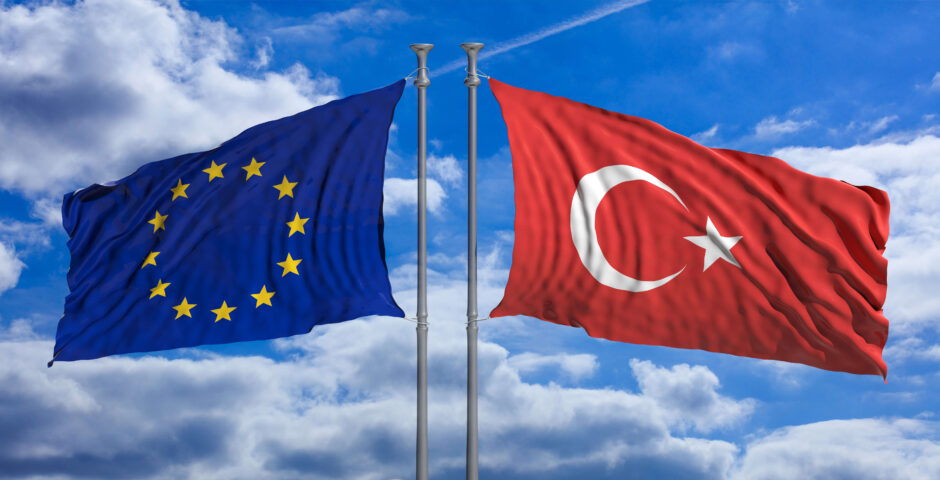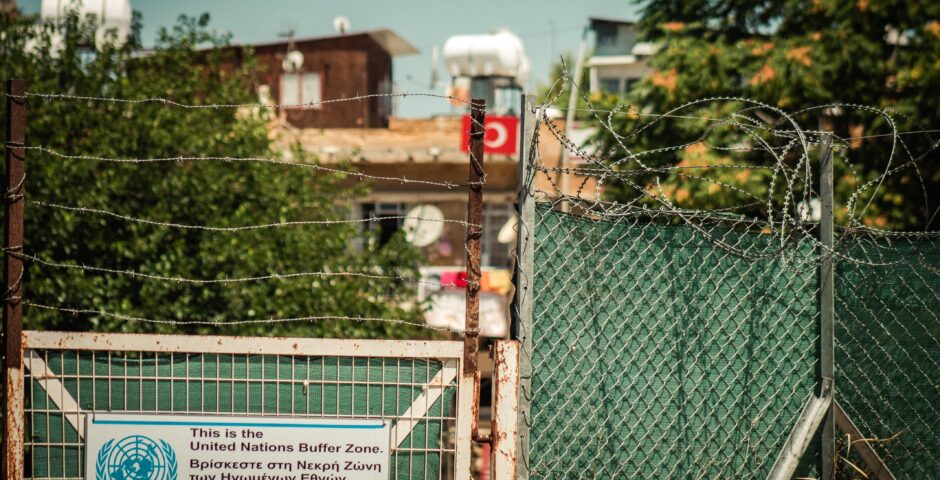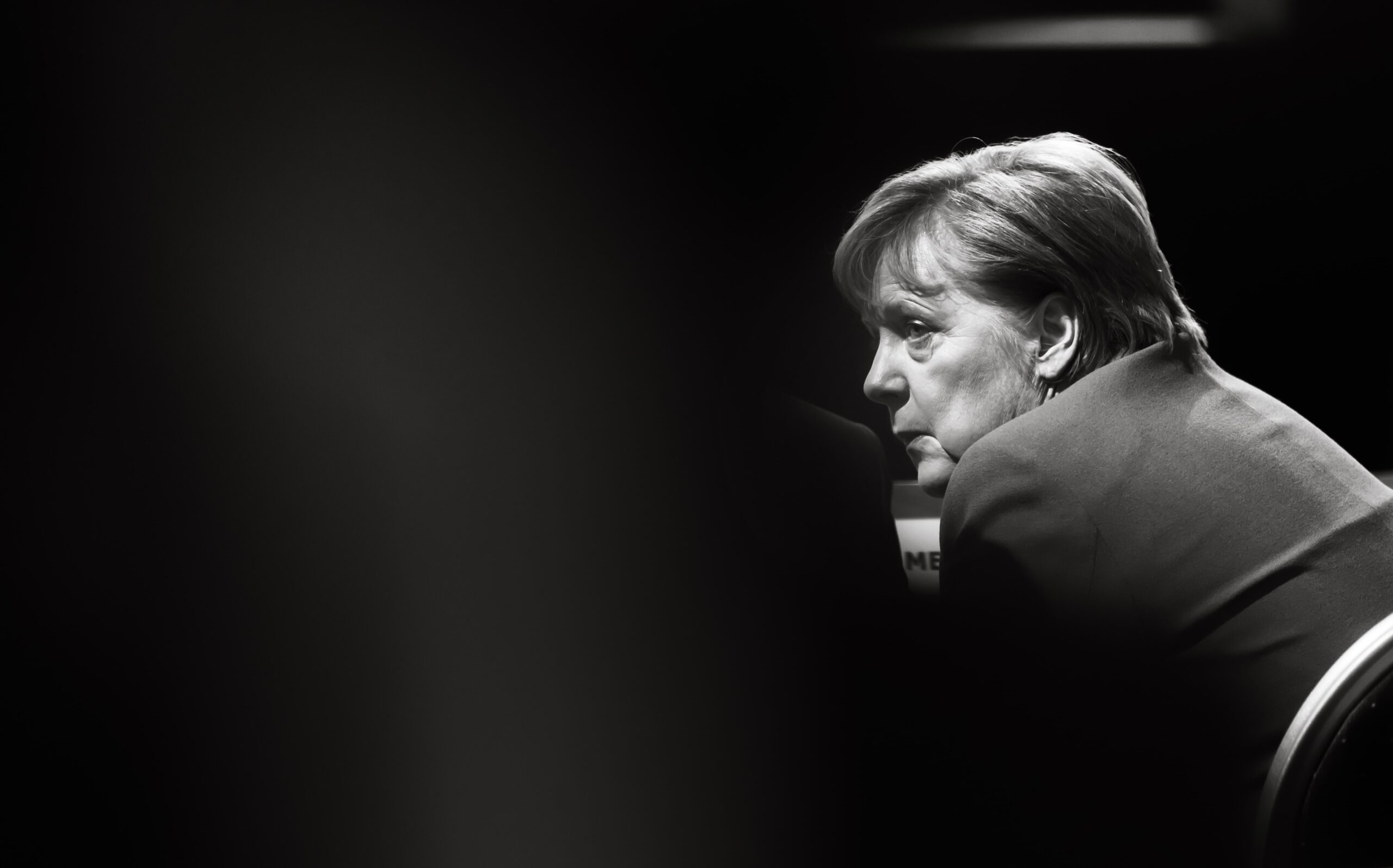Sofagate is important but let’s not forget about EU-Turkey relations

What is Sofagate?
Sofagate has hit the news in a way European politics rarely does. The incident, now popularly dubbed ‘Sofagate’, occurred after a meeting of European Commission President Ursula von der Leyen and European Council President Charles Michel with Turkish President Recep Tayyip Erdoğan in Ankara.
On this video, which went viral, the three leaders are recorded entering a conference room with Michel and Erdoğan heading for the only two available chairs. Von der Leyen, left standing, utters an indignant “ähm” before being seated on the sofa, visually and spatially removed from the two men.
Who is to blame?
What followed was a vivid discussion on who is to be held responsible for Sofagate, with blame being shifted back and forth between the EU Council protocol team and the Turkish Government. According to EU protocol the European Commission President and the European Council President are to be considered of equal rank and status when on foreign visits, which should be reflected in the seating arrangements.
Dutch MP Sophie in ‘t Veld posted a tweet of previous EU-Turkey meetings where the two EU leaders and Erdoğan are comfortably seated next to one another. ‘T Veld addressed her tweet at Charles Michel directly, asking the EU Council president why he remained silent during the incident.
In a Facebook post published the day after the event (07 April), Michel expressed that he had merely intended to “do the right thing” but was hampered by protocol rules set by the Turkish authorities. The Turkish foreign minister Mevlüt Çavuşoğlu, on the other hand, contested Michel’s implication and instead stated that the seating arrangements “were made in line with EU suggestions.”
Critical voices have noted that inter-institutional tensions between the Council and Commission presidency have been running high long before Ankara. In 2017, then Commission president Jean-Claude Juncker held a speech in which he suggested that combining the two presidencies into one would increase efficiency in EU decision-making. “Europe would be easier to understand if one captain was steering the ship.” With Sofagate, Michel as the Council President has symbolically benefited from his assigned seat next to the Turkish president while Von der Leyen has – quite literally – been sidelined.
While the debates on whom to blame for Sofagate remain divided, Ursula von der Leyen has highlighted sexism as the underlying problem. In a speech held at the European Parliament two weeks after the event, Von der Leyen stated that she “felt hurt” and “felt alone”, both “as a woman and as a European.” Having not found any justification for the seating arrangements in the European treaties nor any shortage of chairs on footage from previous EU-Turkey meetings, Von der Leyen concluded that it happened because of her gender.
This, so the Commission president, goes far deeper than the unfortunate seating arrangement: “This goes to the core of who we are. This goes to the values our Union stands for. And this shows how far we still have to go before women are treated as equals. Always, and everywhere.”
Turkish (un)feminism
Ursula von der Leyen’s speech is especially ironic when considering that women’s rights were high up on the agenda of the EU-Turkey meeting. Turkey has only recently pulled out of the Istanbul Conventions, an international agreement initiated by the Council of Europe aimed at preventing and combating violence against women and domestic violence.
One of the explanations for this decision was the feared “normalisation of homosexuality” by Turkish authorities (see this statement by the Turkish Directorate of Communications). Notably, the Turkish Directorate of Communications stresses that the Turkish Government will proceed to fight for women’s rights independent of the Istanbul Convention but that homosexuality is incompatiable with Turkish family values and norms.
Turkey’s withdrawal from the Istanbul Conventions represents just one of many obstacles hampering accession talks between the EU and Turkey. Turkey first applied to join the then European Economic Community (EEC) in 1987 and received EU candidate status only in 1999. Accession negotiations with Turkey started in 2005 but remained unfruitful due to a consistent failure to uphold the EU’s human rights, fundamental rights and rule of law standards.
The Turkish government experienced serious democratic backsliding after the accession of president Recep Tayyip Erdoğan in 2014. Governmental authorities first increased pressure gradually on democratic institutions such as civil societies and the press. The situation further escalated in 2016 when the Turkish government announced a state of emergency in response to a failed coup attempt which remained unlifted for almost two years. The emergency decrees further centralized governmental power and curtailed basic freedoms and citizen rights.
The EU Report on Turkey 2018 notes that even after the decrees were lifted in July, legislative changes made under the state of emergency will continue to shape governmental decision-making processes and justify further democratic backsliding. The report further noted that “Since the introduction of the state of emergency, over 150 000 people were taken into custody, 78 000 were arrested and over 110 000 civil servants were dismissed whilst, according to the authorities, some 40 000 were reinstated of which some 3 600 by decree.” As a result, accession talks essential came to a standstill in 2018.
2020 proved another turbulent year in the history of EU-Turkey relations with Turkey threatening to ‘open the gates’ to let Syrian refugees pass into Europe to harness support from the EU for its operation in Syria. With the support of the EU, Greek authorities responded by fortifying its borders, increasing its naval guard and tear gassing approaching migrants at the border.
So what was the EU-Turkey meeting about?
Against this backdrop, the meeting in Ankara was an attempt to turn a new chapter in the long book of EU-Turkey relations. Prior to the meeting, High Representative and Vice-President of the European Commission Joseph Borrell highlighted that economic interests underpin the need for cooperation on both sides with the EU being Turkey’s most significant import and export partner. “Looking at the latest pre-pandemic figures, we see €69.8 billion of Turkey’s exports directed towards the EU, and €58.5 billion of its foreign direct investment (FDI) coming from the EU.”
Four main points of discussion were put onto the agenda. Firstly, the strengthening of economic ties and improvement of the Custom Union. Secondly, high-level dialogues on topics such as climate change and COVID-19. Thirdly, increased cooperation on people-to-people contact through programmes such as Erasmus+ and Horizon Europe. Lastly, the topic of migration in light of the 2016 Turkey-EU deal remains a crucial point of discussion between the EU and Turkey. According to Ursula von der Leyen, the EU has promised to continue investments in order for Turkey to accommodate Syrian refugees. At the same time, the Commission President formulated the demand to return Syrian migrants on the Greek isles to Turkey “without any delay.”
The debacle of Sofagate has arguably overshadowed the overall optimistic attempt to revive EU-Turkey relations with reproachments being made on both sides. The European Council will hold a meeting in June to assess progress made on the basis of the Ankara meeting, while discussions on sexism within European Union politics will undoubtedly continue as well.
Cara is currently completing her BA in European Studies at the University of Amsterdam. She has a passion for ethical journalism, focussing on EU foreign relations, gender equity and human rights.
Image: Shutterstock




